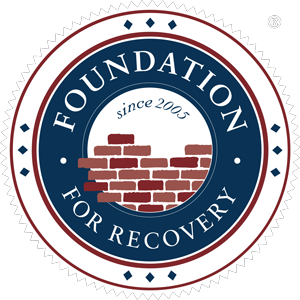
A strength-based, person-centered approach to supporting those who are new to or struggling with their recovery.
Speak directly with a peer recovery support specialist. The Care Connection team is staffed by people in recovery helping anyone in need. It's operated Monday - Thursday, from 10 a.m. - 3:30 p.m.
Peer Recovery Support is centered around the goals, needs, and strengths of people in recovery and those currently struggling with substance use.
Peer recovery Support Specialists, also known as Recovery Coaches, use their experience as people in recovery from addiction or co-occuring disorders, along with specialized training, to offer a support system through mentorship, goal setting, advocacy, and encouragement.
Peer recovery support services can effectively extend treatment beyond the clinical setting into the everyday environment. Many people have successfully found recovery through working one-on-one with a Peer Recovery Support Specialist, before treatment, in-lieu of treatment, or after formal treatment.
More information about peer recovery support services and peer recovery support specialists may be found here.
In short, anyone in recovery or struggling with their substance use.
We match each individual seeking support (our peers) with a Peer Recovery Support Specialist most reflective of that individual’s experiences.
For example, our peer Recovery Support Specialists come from diverse backgrounds such as, history of military service, previously incarcerated, LGBTQ, experienced homelessness, and others. We call this lived-experience and try to match each individual with a Peer Recovery Support specialist who matches or is reflective of their backgrounds.
Locations we serve:
Some other things to note:
We offer two types of individual peer recovery support.
Drop-in recovery Supports are supportive services provided as needed. Usually before any comprehensive support has been initiated. For example, when someone calls the Recovery Warmline needing to speak with someone on the phone or is in need of finding for additional resources.
Another example is when someone stops into one of the recovery community centers seeking assistance with something more immediate, such as clothing or a crisis.
Comprehensive Support are regular, ongoing recovery coaching sessions. The individual seeking support will work with their peer recovery support specialist to build a recovery plan, outlining needs, barriers, and goals in their recovery.
Following the creation of a recovery plan, follow-up sessions are scheduled on a regular basis to assist the individual on their recovery journey.
Peer Recovery Support sessions can be offered in-person, over the phone, or via video sessions using Zoom (tele-recovery support).
Our Community Recovery Center is an enriching space organized and operated by local communities of recovery, offering individualized and group support, trainings, activities, and workshops, all at no cost to the community. New participants can drop-in to speak with a member of our Care Connection team, Monday-Thursday from 10 a.m. – 3:30 p.m. We see all drop-ins on a first come first serve basis. You may also complete our pre-enrollment form by clicking here and we’ll get in contact with you to schedule your first visit.

The Foundation for Recovery is a tax-exempt charitable organization under the Internal Revenue Code Section 501 (c) 3, Tax ID No. 203380211. Your donation may be tax-deductible (pursuant to NRS 598).
© 2020 Foundation For Recovery, Inc. All rights reserved. Foundation For Recovery, FFR, the Foundation For Recovery logo, and certain other marks are owned by Foundation For Recovery, Inc.
Recovery Friendly Workplace Ambassador

The Southern Nevada Recovery Community Center offers several spaces open to the groups and organizations to rent for meetings, support groups, trainings, and events. Learn more or contact therooms@forrecovery.org for more information.
Person-centered recovery is directed, as much as possible by the person – including decisions about who should be included in the process. The planning identifies just a few small, but meaningful, short-term changes that the individual can focus on helping to reduce some of the barriers or challenges moving forward. Person centered care should be central to all recovery frameworks.